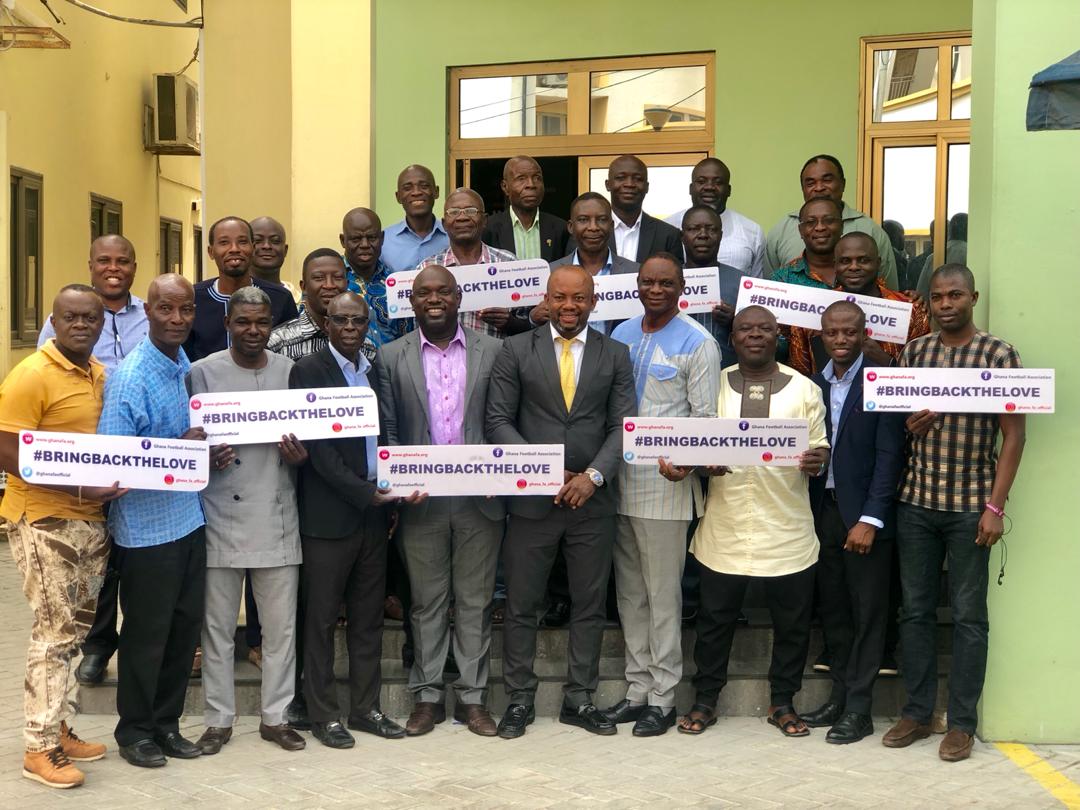
The Juvenile Committee of the Ghana Football Association (GFA) has held a juvenile football stakeholders meeting today at the GFA Secretariat to solicit their inputs on the way forward for juvenile football in the country.
Present at the meeting was the GFA President, Kurt E.S. Okraku, who is also the Chairman of the Juvenile Committee of the GFA. Stakeholders who attend ded the meeting included the Regional Football Associations, the GFA Technical Directorate, a representative from the National Physical Education sector of the Ghana Education Service and the IT Department of the GFA.
Key among issues deliberated upon at the meeting included how the RFA and the district offices would work for effective youth development, how the GFA and Ghana Educational service can collaborate and run an effective juvenile system? among others.
Addressing all stakeholders present, President Kurt E.S. Okraku reiterated the need to make football more accessible to the youth in Ghana; especially at the schools and district levels, as well as the need to prioritize the development of coaches at the grass-root level, to enhance their technical know how. The GFA President also urged the stakeholders to bring sanity into the juvenile system.
Mr. Francis Oti Akenteng, the Technical Directoratr of the GFA, briefed stakeholders on upcoming youth programs for the male and female U-15 sides while the IT department also enlightened them on the registration system and how to streamline their player registrations with the system.
Source|ghanafa.org
Comments
Post a Comment